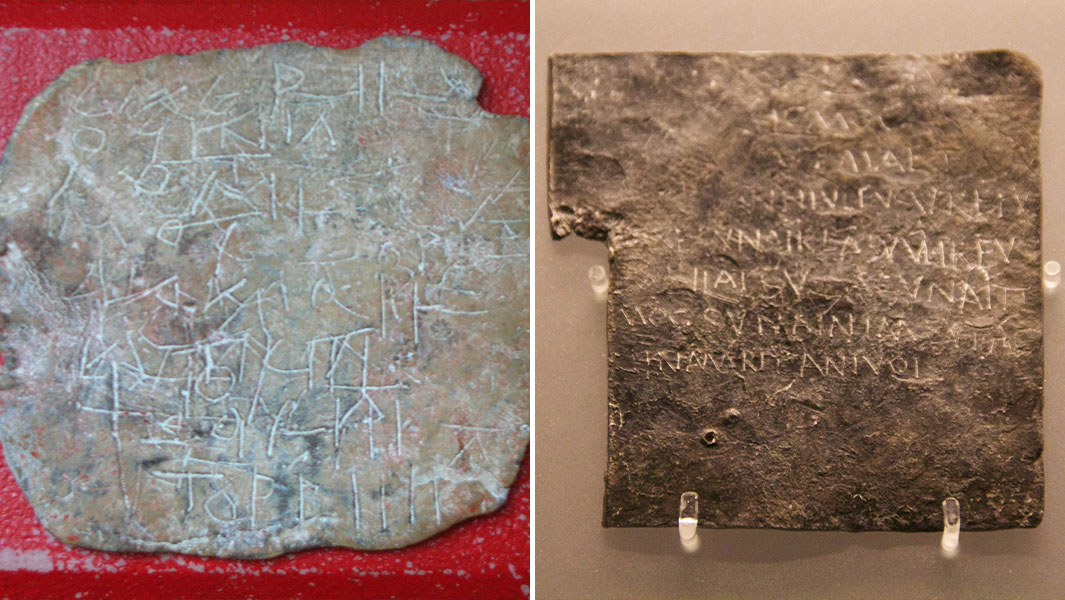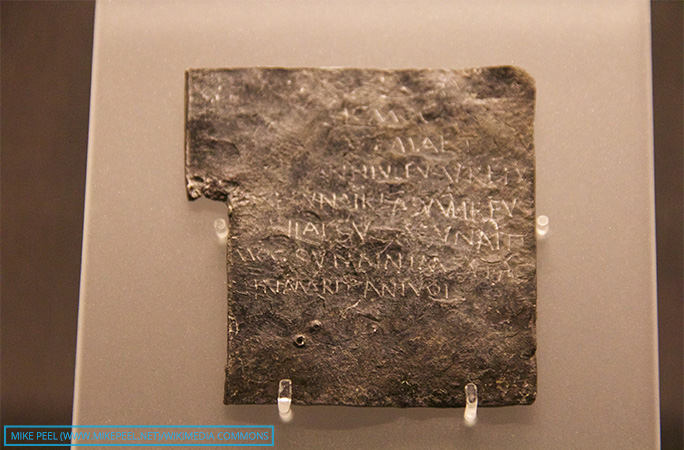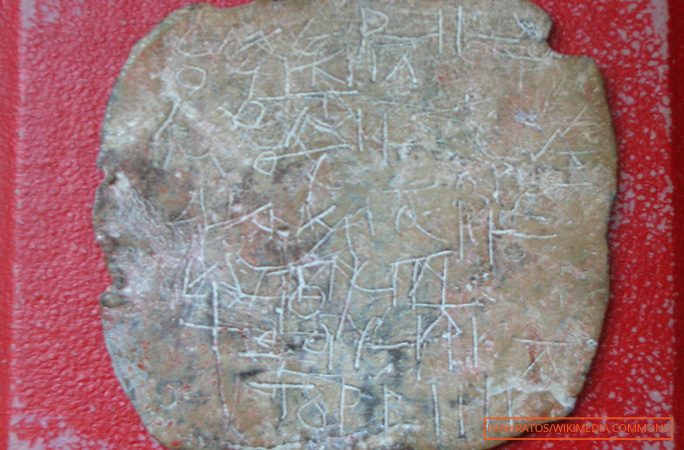How Ancient Romans used 'curse tablets' to take vengeance on their enemies

Back in Ancient Rome, one of the best ways to get revenge on someone who’d wronged you was to dedicate a curse tablet to them.
A curse tablet was a small sheet of metal, usually made of lead or lead alloy, that someone would inscribe with their requests to the gods.
But these weren’t the kind of pleas you might expect people to make, they were a lot more sinister than that.
Disgruntled people would use curse tablets to seek vengeance.

A curse tablet found in Bath, UK
They’d ask for people who’d stolen from them to be struck down with horrible illnesses, the marriages of their lost love interests to fail, and for various other malicious things to happen to their perceived enemies.
People would inscribe their requests on a tablet and fold it up before placing it in a location believed to have magical power.
Common places to put them were sacred springs and rivers, temples, wells, and in the soil of graveyards.
People would sometimes even open tombs so they could place curse tablets in the hands of the dead.
A #Roman lead curse tablet from Uley (Britain). It asked the god Mercury to punish the unknown thief of a pair of gloves taken from the dedicant, by taking his 'blood & health' in vengeance. Dated C2nd-4th AD #RomanArchaeology (📷 British Museum) pic.twitter.com/zHsRlpQknA
— Dr Jo Ball (@DrJEBall) December 5, 2021
The largest cache of curse tablets – also known as defixiones – ever found was within the ruins of a temple dedicated to the Roman god Mercury near the village of Uley in Gloucestershire, UK.
A total of 131 of the tablets were discovered during archaeological excavations being carried out by Ann Woodward and Peter Leach between 1977 and 1979.
One of them asked Mercury to punish the unknown thief of a pair of gloves, asking for their “blood and health” to be taken.
Just like ones found in other sites around the Roman world, around 45 of the tablets found in Uley were blank, although they’d been folded and deposited just like the others.
It’s theorised that these tablets were used by illiterate Romans.

A curse tablet found in Eyguières, France
It’s thought people who couldn’t read or write would speak their curse to the tablet instead.
In some cases, the blank tablets had scratches on them, seemingly intended to resemble writing.
It was very widely believed throughout the ancient world that these curses worked.
Even emperors and members of the Roman aristocracy are said to have been worried about people using the small pieces of lead against them.
For example, the death of Emperor Tiberius’s adopted son, Germanicus, was attributed to "the implements of witchcraft by which it is believed that the living soul can be devoted to the powers of the underworld".


